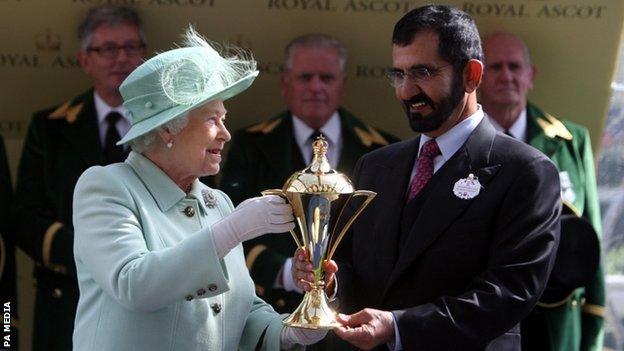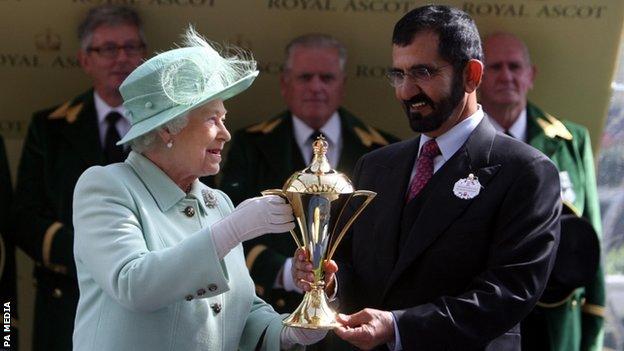Princess Latifa clips ‘concern’ horse racing chief
The British Horseracing Authority says it has spoken to the government following a BBC Panorama programme detailing allegations about the missing…


The British Horseracing Authority has expressed its “concern” over claims by Sheikh Mohammed’s daughter, Princess Latifa, that she has been imprisoned by her father and fears for her life.
Dubai’s ruler, Sheikh Mohammed, is racing’s biggest benefactor, the owner of global racehorse operation Godolphin and the Newmarket-based stallion breeding operation, Darley.
Nearly three weeks after Panorama revealed secret videos filmed by Princess Latifa, the governing body has addressed the issue for the first time.
Julie Harrington, the BHA’s new CEO, said the organisation “shares the concerns” raised by Foreign Secretary Dominic Raab, and described the footage as “clearly distressing”.
She confirmed that the BHA has been in contact with the UK Government on the matter.
The United Nations said on Friday it has not yet seen evidence that Princess Latifa is still alive.
A year has passed – without comment from the BHA – since the family division of the High Court found Sheikh Mohammed to have been responsible for a campaign of intimidation against his former wife Princess Haya and for the abduction and forced return of two of his daughters from a different marriage – including Princess Latifa.
The Sheikh insisted he was unable to participate in the court’s fact-finding process, resulting in a judgement he said “inevitably only tells one side of the story”.
A Dubai Royal Family statement released after the Panorama programme said Latifa was being cared for at home and the media coverage was “not reflective of the actual position”.
The Jockey Club – which owns Newmarket Racecourse, of which Godolphin is a sponsor – has also not commented on either matter.
In response to questions from the BBC, Harrington said: “We have heard the public comments made by the Foreign Secretary, Dominic Raab, in which he expressed concern about the distressing pictures shown on television.
“I share his concern – the footage clearly is distressing and we support Mr Raab’s position that the UN human rights body should lead this investigation.
“We have taken time to consider the issues since Mr Raab spoke. These are complex matters, involving an overseas state with strategic ties to the United Kingdom. The matters go well beyond the world of racing, and the UN is involved.
“We can confirm that as part of this, we have been in contact with the British government to explain our responsibilities as regulator, as well as to highlight a significant investment and contribution to the British racing industry.
“We cannot discuss contact with government further and we are also not going to confirm whether we are or are not taking any action.”
Within the BHA’s rules on the suitability of owners, it says: “The criteria to which the authority will have regard in assessing honesty and integrity, include… whether the applicant has been the subject of any adverse finding by a judge in any civil proceedings.”
However, the BHA’s policy means it will not disclose whether investigations are ongoing.
Harrington – who took the helm of the BHA in January after leaving British Cycling – warned separately that racing is facing an “existential crisis”.
She made the comments in an interview with the Racing Post, primarily focused on the fallout from the photograph of trainer Gordon Elliott sitting astride the body of a dead racehorse – for which he has been banned for 12 months, with the second 6 months suspended.
However, she has also encountered several other issues in her first two months in the role, including the Panorama allegations about Sheikh Mohammed, the ongoing impact of coronavirus and gambling reforms which could cost the industry more than £60m.
“People use the phrase ‘existential crisis’ and I don’t think that is underestimating it,” Harrington told the newspaper.
“To see our sport on the front pages for the wrong reasons, and for the general public to have been given the perception our horses are not cared for, is a crisis for the industry.”




